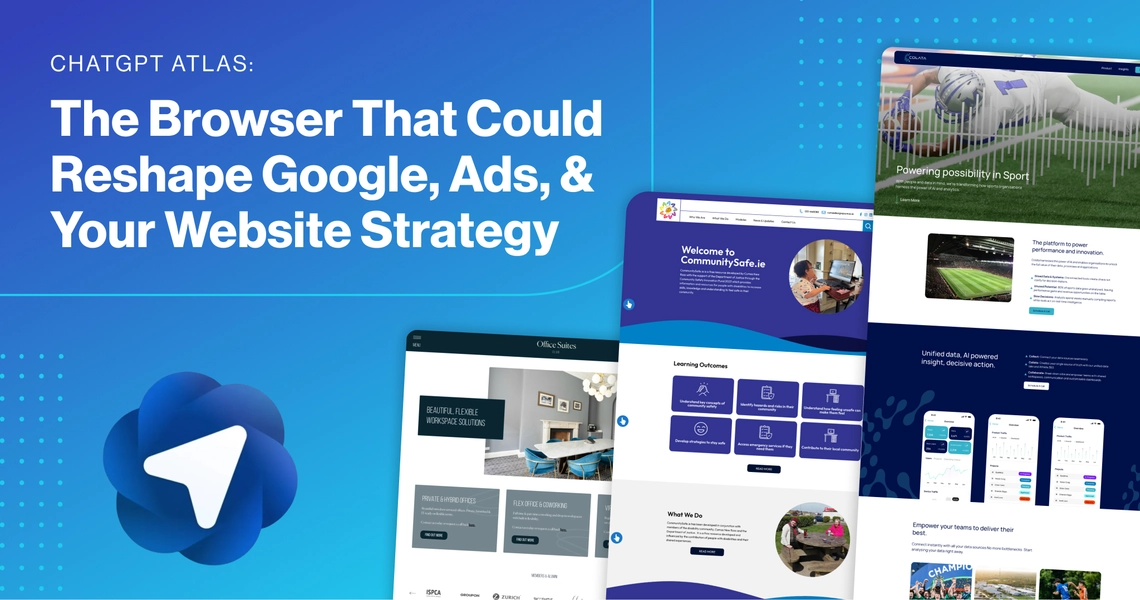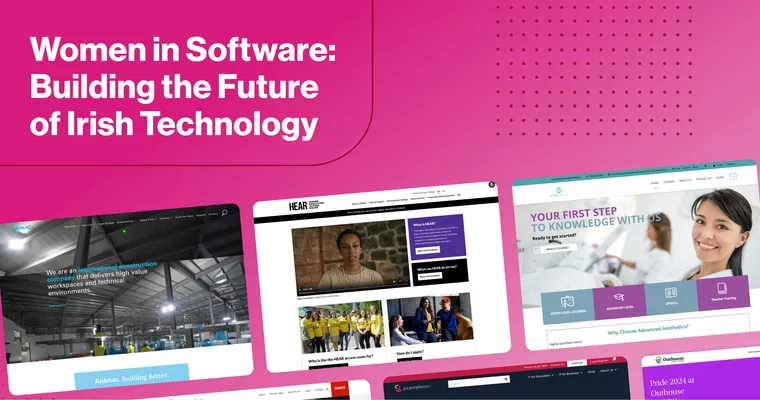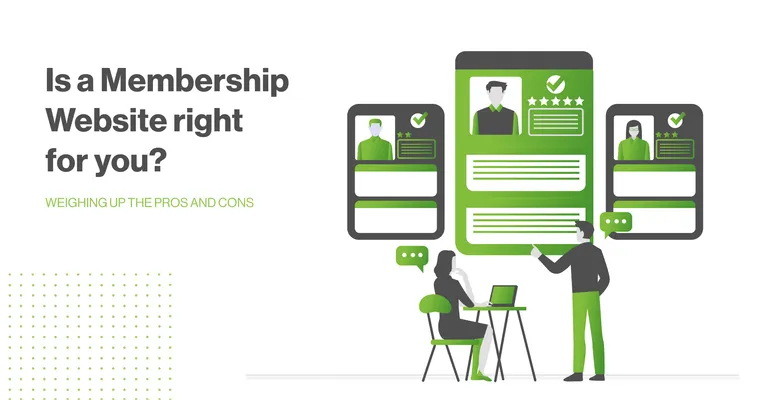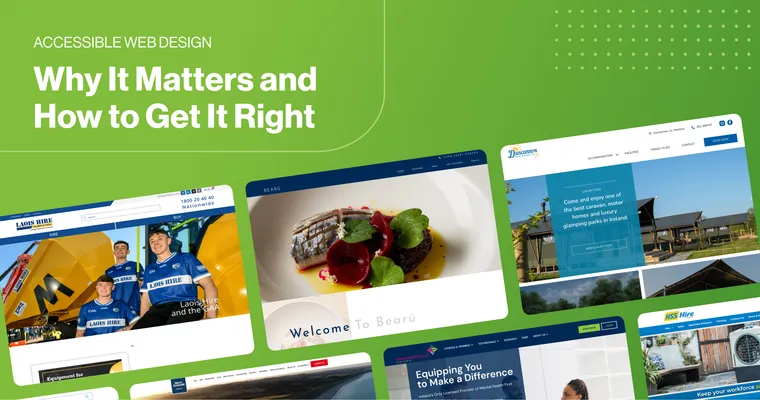When OpenAI announced ChatGPT Atlas the internet browser with ChatGPT built in it quietly marked one of the biggest shifts in how we’ll experience the web in the years ahead.
At first glance, it looks like another browser launch. But for anyone in digital strategy or web development, it’s much more than that.
ChatGPT Atlas blurs the lines between search, AI, and browsing allowing users to ask, explore, and consume information without ever leaving a single interface.
In other words, instead of typing a question into Google and clicking through ten results, users can now ask Atlas and get a personalised, summarised, interactive answer built from multiple sources across the web.
That changes everything.
1. What ChatGPT Atlas Means for Google and Chrome
For years, Google has been the gatekeeper of information online. Its advertising empire from Search Ads to Display and Shopping is built on clicks, impressions, and time spent on results pages.
Atlas threatens that model.
If users start browsing and searching directly inside ChatGPT Atlas, we’ll see:
- Fewer searches on Google – because users can simply ask the AI directly.
- Fewer clicks to websites – as AI summarises multiple sites into one conversational response.
- Fewer ad impressions – because there’s no traditional results page to display them on.
And while Chrome currently dominates the browser market, Atlas changes the game by combining browsing and AI assistance. It’s like having a personal researcher and writer built into your browser making Chrome suddenly feel old-fashioned.
2. The Real Threats for Website Owners and Advertisers
From an agency’s perspective, the implications are immediate. If AI browsers like Atlas become mainstream, websites risk losing traffic even if their content is still valuable.
We’re already seeing the early signs:
- Impressions down, positions up. On several 2Cubed client projects, Google Search Console data shows content still ranks highly, but click-through rates have dropped. People are seeing the information they just don’t need to click when AI gives them the summary.
- Content credit dilution. When AI pulls snippets from multiple sources, the original author often goes unrecognised. Your expertise feeds the AI’s answer, but the user never reaches your site.
- Ad performance volatility. As user journeys shorten, cost-per-click models could fluctuate. Some industries will see CPCs rise due to fewer opportunities for visibility.
This isn’t a doomsday scenario – it’s an evolution. The key is knowing how to adapt before it becomes the norm.
3. How 2Cubed Is Preparing for the AI-Browser Era
At 2Cubed, we’ve been watching this trend for over a year and have already started implementing strategies to future-proof our clients’ websites.
Structured, AI-readable design
For example, Brownes Photography was built on a Next.js + Storyblok setup that’s optimised for both human experience and machine understanding. Every image, caption, and paragraph includes structured data so that AI systems like ChatGPT Atlas can interpret the content correctly – without stealing its context or credit.
Private content and gated expertise
For Brokers Ireland, we designed a member-only resource section and event management system. These gated areas protect premium content from AI scraping, ensuring the association’s value stays within its own ecosystem.
Data-rich product information
On Caragh Nurseries, we’ve enhanced schema markup and introduced detailed image metadata to help search engines and AI models understand products better while still driving users back to the site for the final decision or purchase.
Each of these approaches reflects one clear principle:
We now design websites for humans and algorithms equally – ensuring both can read, understand, and respect your content.
4. How to Future-Proof Your Website and Marketing Strategy
If ChatGPT Atlas becomes a mainstream way to browse, businesses that adapt early will have the edge. Here’s how to get ahead:
a. Optimise for comprehension, not just ranking
Use structured data, schema, and semantic HTML. Make your content factual, well-authored, and sourced. AI systems reward clarity, credibility, and trust.
b. Protect what you own
Create assets that AI can’t reproduce interactive tools, downloads, gated guides, and brand-specific visuals. These encourage genuine engagement instead of passive consumption.
c. Build brand authority, not just content
Show real expertise: include your team’s credentials, years in business, and project examples. In AI-driven search, authority is the new SEO.
d. Don’t depend solely on Google
Use a mix of traffic sources – LinkedIn, newsletters, partnerships, and direct marketing. If the search landscape shifts, your audience connection remains intact.
e. Rethink advertising
Move from generic keyword campaigns to intent-driven storytelling. Focus on brand, reputation, and trust the things AI can’t fabricate.
5. Why This Is Actually an Opportunity
While the headlines focus on the threat to Google, ChatGPT Atlas opens the door for brands that prioritise expertise, clarity, and genuine value.
If AI browsers prefer accurate, high-quality information from credible sources your job is to become that source.
That’s exactly what we do at 2Cubed:
We build fast, structured, compliant websites that are designed to be understood by both people and the intelligent systems that interpret them.
Whether you’re running an eCommerce store, a professional services firm, or a membership organisation, the goal is the same:
Make your brand the trusted voice that AI tools turn to and users still choose to visit.
In Summary
The arrival of ChatGPT Atlas signals the next evolution of the web. Search and browsing are merging, and visibility will depend on authenticity, structure, and authority not just clicks or keywords.
Now is the time to evolve your strategy:
Refine your content for both AI and human readers.
Protect your expertise behind structured, owned platforms.
Build relationships directly with your audience.
At 2Cubed, we’re already helping Irish businesses prepare for this shift creating websites that perform today and stay relevant tomorrow, no matter how users browse or search.



